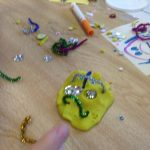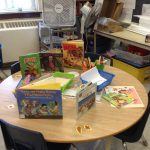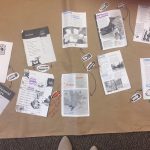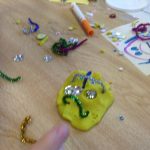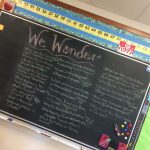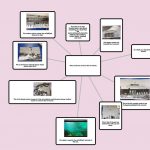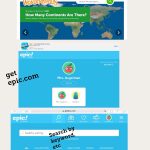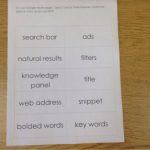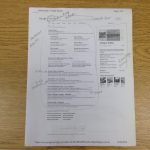This past year, our team has implemented inquiry as a way of learning in our classrooms. One challenge we experience as immersion and Grade 1 teachers was locating materials that students can use effectively for their self-directed inquiries. Often the material that addresses students’ interests and links to curriculum expectations is above students’ reading level. We also recognize the importance of students feeling connected to their community. We believe that having the right resources for student-directed inquiries is part of how we support students in experiencing connectedness to their learning and their community. As we continue to grow in our implementation of inquiry learning, we are focused on finding material and resources for students’ inquiries around social studies topics and then monitoring the effectiveness of these materials for our students’ learning. During this project, we have worked on creating a resource bank to share with others.
Team Members
Barb Mendonca
Greater Essex County District School Board
Marlene Augerman
Greater Essex County District School Board
Diane Tofflemire
Greater Essex County District School Board
Robynne Campbell
Greater Essex County District School Board
Cheryl DelBrocco
Greater Essex County District School Board
Professional Learning Goals
We are interested in continuing to learn about inquiry pedagogy. We learned more about how others are incorporating inquiry learning in their primary and junior classrooms. We tried some ideas that others are using. We identified inquiry resources and social studies resources that our students used effectively. We improved our practice with supporting inquiry. We improved students’ thinking and application through the inquiry process. We improved student connectedness to their community.
Activities and Resources
We began our journey on September 28 planning on using the Project Action Plan Chart. We brainstormed resources we each had and places we thought we could look and people we could ask:
- Comprehension and Collaboration by Stephanie Harvey and Harvey “Smokey” Daniels
- Ontario Curriculum
- Nine Thousand Straws: Teaching Thinking Through Open-Inquiry Learning by Jean Sausele Knodt
- Grade levels of Ontario Hands-On Social Studies An Inquiry Approach
- Capacity Building Series
- Library visit
- Explorations 1: Learning Through Inquiry by Lalie Harcourt and Ricki Wortzman
- Guided Inquiry Design by Carol Kuhlthau, Leslie Maniotes and Ann Caspari
- IQ: A Practical Guide to Inquiry-Based Learning and THINQ 4-6: Inquiry-Based Learning in the Junior Classroom by Jennifer Watt and Jill Colyer
- Engaging Readers and Writers With Inquiry: Promoting Deep Understandings in Language Arts and the Content Areas With Guiding Questions by Jeffrey Wilhelm and Jim Burke
- Connecting the Dots: Key Learning Strategies for Environmental Education, Citizenship and Sustainability by Stan Kozak and Susan Elliot
- Natural Curiosity website and resource
- Stop the Stress in Schools: Mental Health Strategies Teachers Can Use to Build a Kinder Gentler Classroom by Joey Mandel
- Time with our colleagues
We also took a snapshot of our thinking around inquiry… Inquiry is to me…”self-directed learning, student-generated, a way to approach learning, exploring ideas, investigating a question, a process of wondering, uses big ideas.” We continued to meet sharing our experiences with our students in the classroom. One member visited another teacher’s classroom, we invited conversation with other teachers, and we included our learning commons teacher on several occasions. Our group documented the journey together using OneNote. On a few occasions, two teachers met to prepare, investigate and learn on specific inquiries together. Finally, we met to reflect on this process and revisit what inquiry means.
“Inquiry is having something they are interested in and seeking the answers.”
“Inquiry is developing interest and knowledge on a topic in multiple ways.”
“Inquiry is the process of wondering, questioning and investigating.”
“Inquiry is exploring ideas, information, knowledge based on wondering, curiosity, questions and interest of students.”
Unexpected Challenges
- We continue to struggle to find age-appropriate reading materials
- Finding French language materials
- Technology – not enough to go around, difficulties with OneNote, inability to transfer files and photos from iPad to computer
- Students’ confidence and perseverance is lacking
- Poor question development of students
- Time frame of project – we are just getting going now
- Students’ literacy difficulty
- Do we have to always use students’ questions? What’s wrong with the questions provided in the curriculum documents?
Enhancing Student Learning and Development
We spent a great deal of time learning with each other and our students the process of inquiry. More time was spent on this than expected. We developed an understanding of how important the pre-inquiry skills are (e.g., questioning, provocations, making observations, perseverance). We saw growth of questions, wonders and researching abilities (especially in the junior students). Another takeaway was to just jump in and focus on the process and the learning, not the end product.
Sharing
We will be sharing our project results with our administrators and staff at an upcoming staff meeting. It is also our intention to share the folder we accumulated all our resources in. All grade levels and subject area teachers could benefit from this. We learned more about the process of inquiry than the specific resources. We have placed all the resources accumulated in this folder in the resource area of this report.
Project Evaluation
Yes, it was successful. Our goals were all met at varying degrees. As stated earlier, what we all took away were the valuable tools and skills our students need to become better at inquiry. The conversation with colleagues as we jumped into more inquiry in the classroom was invaluable. All of us reflected and made goals for next year:
- More play
- More hands-on activities for engagement
- Will continue to question, research and build curiosity
- Will check in with my colleagues
- More questioning early on, collaboration
- Develop learning on technology
- Continue searching for more materials in French
Student feedback:
Owen, “I liked Genius Hour the best.” “Researching on the Internet was my favourite and doing presentations like Prezi.”
Logan, “I especially liked working with partners during Genius Hour.”
Zoe, “I like interviewing people. I like to talk to the people.” “I enjoyed using PowerPoint.”
Resources Used
Collaboration and Comprehension, Stephanie Harvey and Harvey “Smokey” Daniels, Heinemann 2015
Building children’s understanding of the world through environmental inquiry
Nine Thousand Straws: Teaching Thinking Through Open-Inquiry Learning by Jean Sausele Knodt
An excellent resource with many hands-on activities for students to try.
Stop the Stress in Schools: Mental Health Strategies Teachers Can Use to Build a Kinder Gentler Classroom by Joey Mandel
A well-used resource assisting us with many strategies and ideas to assist with the lack of resilience and perseverance we noticed in our students.
Our learning commons teacher showed me how to create a free account and there’s a huge selection of (fiction and) non-fiction books that can be read-aloud to students online or by downloading the Epic app. There are plenty of topics to choose from for researching for our health inquiry and also fiction for independent reading from a device. It seemed to be especially handy for struggling readers in Grade 4/5. Many of the Level 3 students in Grade 5 ended up searching their health information using Safari or Google. I think it would be ideal for grades 2-4 and struggling junior students.
An excellent search engine for young students to use
A not-for-profit organization providing connections-based learning opportunities
THINQ 4-6: Inquiry-Based Learning in the Junior Classroom by Jennifer Watt and Jill Colyer
IQ: A Practical Guide to Inquiry-Based Learning by Jennifer Watt and Jill Colyer
(particularly the Questioning Skills Rubric on page 144)
A school board site we found with valuable questions for inquiries
http://tsdcurriculum-instruction.wikispaces.com/file/view/health+standards+inquiry+questions
Hands-On Social Studies An Inquiry Approach
Various Grade Levels (1, 2, 3, 4, 5, 6)
Series Editor: Jennifer Lawso
Project Consultant: Bryon Stevenson
Writers: Karen Murray and Astrid De Cairos
Resources Created
These resources will open in your browser in a new tab, or be downloaded to your computer.


